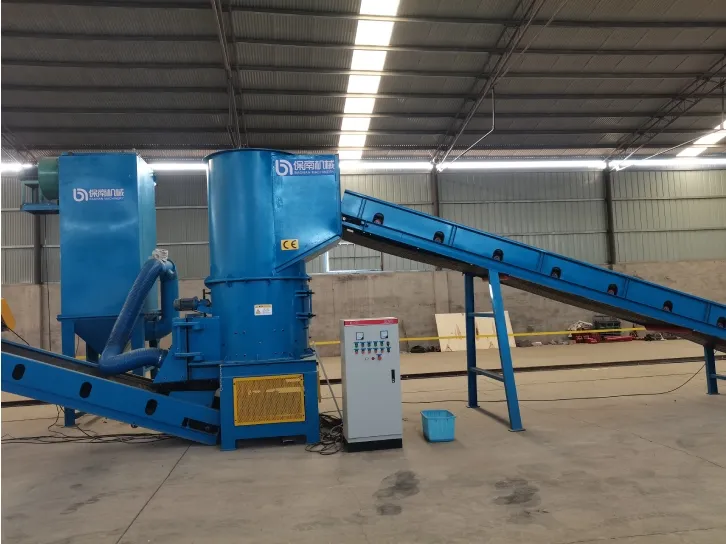

Aug . 09, 2024 03:30 Back to list
The Role of Industrial Chippers in Modern Manufacturing
In today’s fast-paced manufacturing landscape, efficiency and sustainability are paramount. One of the unsung heroes of this environment is the industrial chipper. This specialized machine plays a critical role in various industries by processing wood, plastic, and metal waste into reusable materials. By transforming waste into chips, these machines not only contribute to environmental conservation but also bolster the bottom line for many businesses.
Industrial chippers are designed to handle a wide variety of materials, making them versatile assets in manufacturing and recycling operations. At their core, these machines utilize sharp blades to shred bulky materials into smaller, manageable pieces. In the wood-processing industry, for example, industrial chippers are employed to grind wood debris, such as branches, trunks, and sawdust, into fine chips. These chips can then be repurposed for various applications, including landscaping, biomass fuel, and even paper production. By converting waste into useful products, companies are not only reducing landfill contributions but also discovering new revenue streams.
Moreover, industrial chippers are not limited to wood waste. Many modern chippers have been engineered to process plastics and metals as well. In sectors such as automotive manufacturing, where plastic components are prevalent, chippers can shred scrap plastic into small flakes, which can then be reintroduced into the production cycle. This reuse of materials aids in minimizing waste and conserving resources, aligning with the principles of a circular economy. Similarly, metal shredders, often marketed separately but with shared technology, allow manufacturers to reclaim valuable metals from scrap.

The efficiency of industrial chippers comes from their robust design and advanced engineering. High-capacity models can process large volumes of material at impressive speeds, enabling rapid operation in high-demand environments. As technology evolves, many chippers now come equipped with automated systems and smart technology. These innovations allow for real-time monitoring and adjustments, ensuring optimal performance and reducing human error. Some industrial chippers can even be integrated with other machinery in a manufacturing line, creating streamlined processes that enhance productivity.
Safety is another critical aspect of industrial chipper operation. Given the powerful nature of these machines, manufacturers must prioritize safety protocols to protect operators and maintenance personnel. Features such as automatic feed systems, emergency shut-off switches, and proper guarding mechanisms are essential to minimizing risks. Additionally, regular training and maintenance are vital to ensure that these machines operate safely and efficiently.
While the initial investment in an industrial chipper can be considerable, the long-term benefits often outweigh the costs. Companies that embrace these machines can experience significant savings by reducing waste disposal fees, lowering material costs through reuse, and enhancing their operational efficiency. Furthermore, as consumers increasingly demand environmentally friendly practices, investing in industrial chippers can enhance a company's reputation and marketability.
In conclusion, industrial chippers play an indispensable role in the modern manufacturing and recycling industries. By efficiently processing waste materials into useful products, these machines not only help businesses reduce waste and lower costs but also contribute to a more sustainable future. As technology continues to advance, the capabilities of industrial chippers will undoubtedly expand, offering manufacturers even more innovative solutions for waste management and resource optimization. Embracing these tools is not just a step towards operational efficiency but also a commitment to environmental stewardship in a world increasingly focused on sustainability.
Latest news
Troubleshooting Common Eddy Separator Problems
NewsJul.04,2025
The Role of Metal Recycling Plants in Circular Economy
NewsJul.04,2025
The Impact of Recycling Line Pickers on Waste Management Costs
NewsJul.04,2025
Safety Features Every Metal Shredder Should Have
NewsJul.04,2025
How Industrial Shredders Improve Waste Management Systems
NewsJul.04,2025
How Cable Granulators Contribute to Sustainable Recycling
NewsJul.04,2025